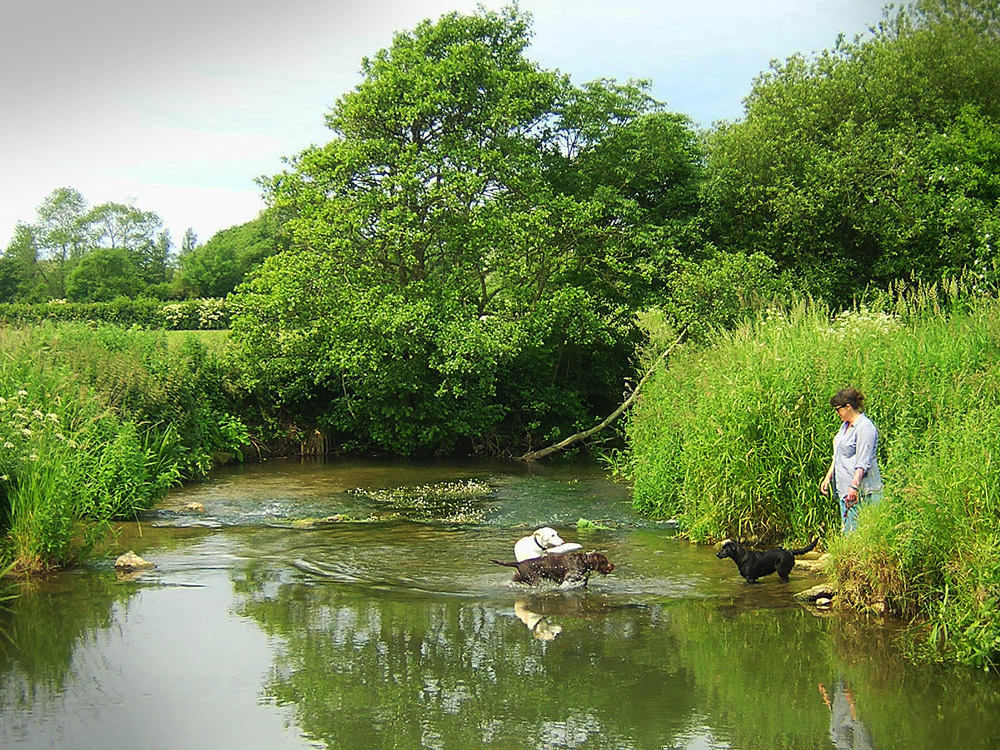by Lorraine Gibson
Human faeces in our water represents ‘a serious public health issue for government and regulators and it is clear that the water companies are not doing enough.’
The words of Professor Chris Whitty, Chief Medical Officer for England, Jonson Cox, Ofwat chair and Emma Howard Boyd, Environment Agency chairman, in a damning joint-opinion piece on the NHS website.
In the article, we’re reminded of the huge, life-saving leap forward in public health that came from the realisation that sewerage can harm or even kill us.
‘One of the greatest public health triumphs of the last 200 years was separating human faeces from drinking water,’ it reads.
‘It was the basis for preventing cholera, typhoid and other bacterial and viral diarrhoeal diseases that killed millions.’
Now, after two centuries of visionary engineering, only vaccination matches it in preventing infectious diseases. Risk, however, remains and is growing.
‘When bacteria from human faeces (coliforms) are ingested, it increases the risk of significant infections.
‘Keeping human faeces out of water people might ingest remains a public health priority.’
The report says UK tap water is safe and that while no one expects river water to be drinkable, places where people swim or play should not result in ingesting human waste. And they make no bones about who is to blame.
‘Raw sewage from storm overflows and continuous discharge of waste containing viable organisms from sewage treatment works is increasing. ‘This is a serious public health issue for government and regulators and it is clear that the water companies are not doing enough.’
The authors emphasise the importance of rivers for recreation and exercise, saying they should be celebrated and encouraged.
‘Children have always played in waterways and always will, irrespective of notices. People of all ages use them for recreation.
‘Our rivers, seas and waterways should therefore be free from sewage. There are two major issues to tackle.
‘The first is raw sewage discharge and in particular from storm overflows. ‘This should be exceptionally rare. The engineering logic of overflows is that if the sewerage system is at risk of being overwhelmed, sewers get too full and can back up into homes or overflow into streets.’
Storm overflows were designed as safety release valves for this and intended only for exceptional circumstances.
Since the Environment Agency required the water industry to monitor its overflows, data shows that their use is now not exceptional.
‘In some cases, up to 200 discharges a year are occurring. This is obviously unacceptable. Nobody wants a child to ingest human faeces.’
Solutions to return storm overflows to only functioning in high rainfall involve better management, innovation and investment – rightly seen as the job of water companies.
Four have agreed to reduce overflows to an average of no more than 20 discharges a year by 2025 – but Ofwat says they need to go much further and the Environment Agency will hold companies to account for delivering this.
The second major issue is with continuous normal discharge from sewage works. While raw sewage is not discharged into waterways from these, viable bacteria and viruses are. Eliminating discharges of coliforms from sewage works upstream of popular recreational areas will help reduce this, something that’s been somewhat achieved for beaches using ultraviolet treatment but other forms of less energy-intensive treatments need be pushed with urgency.
‘It will inevitably require investment. But it is not just a question of money – it needs preventive engineering, better sewer management, innovation and commitment.’
Ofwat has asked all companies for an action plan on how they’ll rapidly improve river health showing a commitment to public health that matches public expectation.
Perhaps the most thought-provoking comment is: ‘We have two stretches of river in England and Wales with bathing water status. There are over 500 in France.’
‘Yes, managing sewers is made more difficult by plastic wet wipes flushed down toilets and congealing with fats that form fatbergs that block sewers. ‘This directly results in avoidable use of storm overflows, so the plea to put wet wipes in bins is real and would immediately help.’
Saying that, the report insists that the true responsibility for keeping human faeces and bacteria out of our waterways rests squarely with the water companies and their directors.
‘Ministers have signalled they want significant action, requiring companies to deliver a multi-billion-pound programme to tackle storm sewage discharges.
‘Companies should take the initiative and go faster. Regulators will hold companies to account. It is time for wastewater companies to act.’
For more information visit deframedia.blog.gov.uk/2022/06/25/government-action-on-water-quality.

FeaturedHome & GardenNews
Increasing threat of sewage in our water
Stour and AvonJuly 29, 20220 Comment0
Related Articles
NewsPolitics May 3, 20240
Candice Johnson-Cole to represent Labour in Mid Dorset & North Poole
CANDICE Johnson-Cole has been selected to represent Labour in Mid Dorset & North Poole…
MotoringNews May 3, 20240
Roadworks across Dorset in May and June announced: Full list
ROADS in Wimborne, Gillingham, Sturminster Newton and Dorchester will be among a host to…
BusinessCrimeNews May 2, 20240
Man was punched unconscious after Poole shop window smashed
POLICE are keen to trace this person after a fight broke out over a…









Leave a Reply